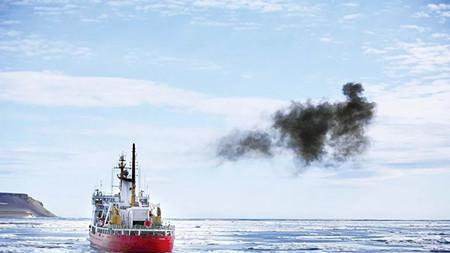2020全球限硫令

背景
协会提请会员参考协会之前发布的关于国际海事组织《经1978年议定书修订的<1973年国际防止船舶造成污染公约>》附则VI的2008年修正案的出版物,该公约将于2020年1月1日生效。修正案将确保船舶硫排放的大幅减少(2020年全球限硫令),从而体现了航运业致力于履行其保护环境义务的态度。
2020全球限硫令
自2020年1月1日起,MARPOL对在指定排放控制区以外作业的船舶的船用燃油含硫量上限从3.50%降至0.50%。 MARPOL排放控制区 (ECA) 的硫排放上限0.10%以及任何适用的地方法规将依然适用。
国际海事组织海洋环境保护委员会(MEPC 73) 批准了一项带有附加条件的禁止运输不合规船用燃料的禁令,禁令将于2020年3月1日生效(Regulation 14 MARPOL Annex
VI)。装有废气净化系统(洗涤器)的船舶可继续运载含硫量超过0.50%的燃料,废气净化系统旨在清除船舶发动机和锅炉废气中的氧化硫以将硫排放量减少至规定燃油硫限量范围内。会员应在停靠港口前对于港口是否有任何关于使用开环洗涤器或处理洗涤器洗涤水的禁令或额外要求进行确认。
国际海事组织已制定进一步指导方针,包括在IMO网站发布燃油不可获取性报告((FONAR)。根据MARPOL Annex VI 第18条,将有可能向缔约国提交燃油不可获取性报告((FONAR),对船舶在无法获得合规燃料时所采取的步骤进行记录。 必须指出的是,FONAR并不是一种豁免政策;FONAR是缔约国在对违规船只采取执法行动时需要进行考量的若干文件之一,国际海事组织同样发布港口国控制准则以协助这方面的工作。 在面对执法行动时,会员应能够提供能够完整记录其为遵守法规而做出的努力的文件。
2020全球限硫令存在有限的例外情况:系为保障船舶安全或救助海上人命所必需的任何排放,或由于船舶或其设备遭到意外损坏而引起的任何排放(取决于某些条件)。
保赔险保障
IG协会认识到2020年全球限硫令对于航运业来讲是一个重大挑战,协会一直密切关注国际海事组织对此议题的讨论。
对违规行为的处罚可能包括罚款、拘留,在极端情况下,还可能包括PSC 禁令。2020年全球限硫令并不要求协会现行规则进行任何修改。正如常例,IG协会不会允许违反MARPOL的行为。然而,责任,包括针对纯属意外性的不合规排放而产生的罚款,将依据保单条款以及协会规则规定而获得保赔险的承保。上述责任还同时包括赔付其他方所招致的罚款的责任。
至于保赔保险对于其他罚款的承保,例如,违反MARPOL文件要求或其他要求(包含记录不准确或不充分,或运输或使用违规燃油)所引发的罚款,须在结案时由协会董事会独自裁定同意后方可得到承保。除非协会董事会经自由裁量同意为此类案件提供承保,否则协会可能无法提供担保,即使协会提供了担保,也必须以协会收到可接受的反担保为条件(通常情况下以现金或者银行保函形式出现)。协会对于此事的立场与国际保赔集团之前发布的关于违反MARPOL的通函的所述立场是相同的。
众所周知,2020年全球限硫令可能导致在有限情况发生之前从未经历的保赔责任,例如,尽职调查后仍未能检测出认可洗涤器发生技术故障,从而导致的不合规排放的意外排放或者污染性洗涤水的排放。有意见认为,未能遵守MARPOL限硫令条款的事实效力等同于判定船舶不适航,而船舶不适航将损害保险保障的有效性。然而,应该具体事情具体分析,国际保赔集团协会希望厘清以下两点:一、法规违反行为并不一定被认定为船舶不适航;二、在某种程度上,法规违反行为并不一定会使会员丧失保险权利。
如有任何疑问,请会员联系协会就具体案件情况进行讨论。
国际保赔集团所有协会均发布类似通函。
通函内容,请以英文原文为准,汉语翻译仅供参考。 如您对上述内容有任何疑问,新乔十分乐意为您解答并提供帮助。
The 2020 Sulphur Cap
Background
We refer Members to our previous publications on the
2008 amendments to Annex VI of the IMO’s International Convention for the
Prevention of Pollution from Ships 1973 (as modified by the Protocol of 1978)
(MARPOL) and which will come into force on 1 January 2020. The amendments will ensure a significant
reduction in the sulphur emissions from ships (the 2020 Global Sulphur Cap) and
thereby demonstrate that the shipping industry is committed to meeting its
environmental obligations.
The 2020
Global Sulphur Cap
On and after 1 January 2020, the MARPOL permitted
limit for sulphur content in ships’ bunker fuel oil will be reduced from 3.50%
mass by mass (m/m) to 0.50% m/m for ships operating outside designated emission
control areas. The MARPOL Emission Control Area (ECA) limit of 0.10% will still
apply, as will any applicable local regulations.
The IMO’s Marine Environment Protection Committee
(MEPC 73) has approved a prohibition on the carriage of non-compliant bunker fuel
which will come into force on 1 March 2020 (Regulation 14 MARPOL Annex VI),
with certain caveats. Ships fitted with
exhaust gas cleaning systems (scrubbers), which are designed to remove sulphur
oxides from the ship’s engine and boiler exhaust gases in order to reduce
sulphur emissions to a level not exceeding the required fuel oil sulphur limit,
can continue to carry fuel with a sulphur content of more than 0.50%. Members should check before calling at a
port if the port has any ban or additional requirements relating to the use of
open loop scrubbers or for dealing with wash waters from scrubbers.
The IMO has developed further guidance, including a
fuel oil non-availability report (FONAR), which is on the IMO’s website. Under
Regulation 18 of MARPOL Annex VI, it will be possible to submit a FONAR to
State parties recording the steps taken when a ship cannot acquire compliant
fuel. It is important to note that a FONAR is not an exemption; it is one of a
number of documents to be taken into account by State parties when considering
enforcement action against a non-compliant ship and Port State Control (PSC)
guidelines have also been published by the IMO to assist in this regard. When facing enforcement action, Members
should be able to fully document the efforts which they have taken to comply.
A limited exception to the 2020 Global Sulphur Cap
requirements is allowed for any emission necessary to secure the safety of the
ship, saving life at sea or any emission resulting from accidental damage to a
ship or its equipment (subject to certain conditions).
P&I Club
Cover
The International Group Clubs recognise that the 2020
Global Sulphur Cap presents important challenges to the shipping industry and
are closely monitoring discussions at the IMO.
Penalties for non-compliance are likely to include
fines, detentions and possibly, in extreme cases, PSC banning orders. The 2020 Global Sulphur Cap does not require
any amendments to be made to existing Club Rules. As has always been the case,
Clubs do not condone breaches of MARPOL. However, liabilities, including fines
for purely accidental discharge of non-compliant emissions, are capable of
P&I cover subject always to the Rules and any terms and conditions of
cover. This would also include the
obligation to reimburse liabilities for fines incurred by another party.
Cover in respect of other fines, for example, for
breach of documentary or other MARPOL requirements, including inaccurate or
inadequate record keeping or carriage or use of non-compliant bunker fuel, is
only available at the discretion of a Club’s Board of Directors at the
conclusion of a case. Until a decision has been made by the Board on cover on
such discretionary cases, Clubs may be unable to provide security and, even if
they do, this will only be in exchange for acceptable counter-security, which would
usually be in the form of cash or a bank guarantee. The position in this respect is the same as
set out in previous International Group circulars issued on the subject of
MARPOL breaches.
It is recognised that the 2020 Global Sulphur Cap
could result in P&I liabilities not previously seen which may arise in
limited circumstances, for example where there is a technical failure of an
otherwise approved scrubber undetectable by the exercise of due diligence that
causes the accidental discharge of non-compliant emissions or the discharge of
polluting wash-water. There have been
suggestions that non-compliance with the Sulphur Cap provisions in MARPOL may
have the effect of rendering a vessel unseaworthy which in turn would prejudice
the availability of cover. Whilst every case will depend on its individual
circumstances, the International Group Clubs wish to make clear both that an
infringement of the Regulations will not necessarily be characterised as
unseaworthiness and, to the extent it were to be, it is not a necessary
consequence that it would deprive a Member of cover.
Where there is any doubt, then the circumstances of
the case should be discussed with the Club.
All Clubs in the International Group have issued
similar Circulars.
来源:北英保赔协会 @ 2019.06.24
http://www.nepia.com/news/circulars/the-2020-sulphur-cap/









